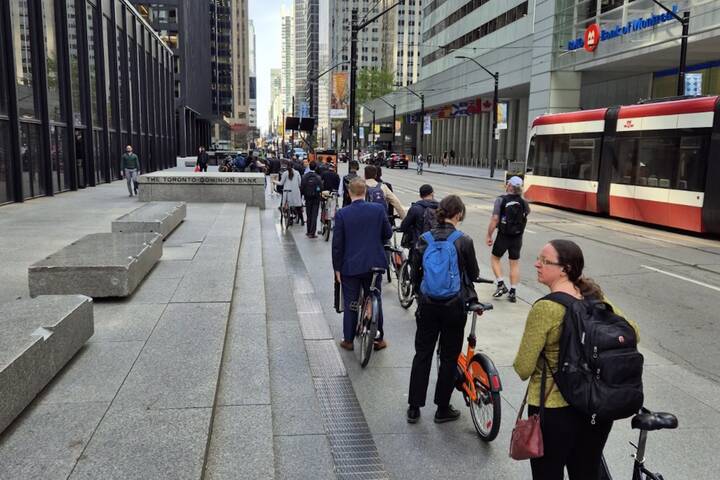
Toronto police are warning of a spike in coronavirus-related scams
As if residents didn't already have enough to worry about amid a global pandemic, Toronto police are now warning them of an increase in text, email and online scams related to COVID-19.
The Toronto Police Service published the Public Safety Alert Tuesday morning, advising residents to be hyperaware of several different scams that are currently circulating in the city.
"Over the last several weeks, investigators with the Toronto Police Service have noted an increase in online scams associated to COVID-19," the release states.
Police say residents have reported scam texts requesting banking information for processing government payments for emergency benefits or the Canada Revenue Agency, fines for leaving the house too many times in a day and demands for immediate payment with threats of cancelled services (i.e. streaming sites).
Email scams are also on the rise, and police say many of them contain fraudulent or corrupt links on topics such as "delivery details" for those most likely to be using delivery services and "special offers" for COVID-19-related products/services.
Police are also warning residents of websites claiming to be selling COVID-19-related products and services — such as testing kits, cleaning products or remedies — as well as information from "health officials" requesting information and/or links to other sites.
"Investigators have also learned of various telephone or door-to-door scams including offers to shop for, and deliver, groceries — these often include a request for credit card information; as well as sales of COVID-19-related products and services," the release notes.
As a result, police are warning that residents should not click on random links, provide personal information (including banking information), install unknown applications (even if you’re asked to via email/text/etc) or use links sent via email/text to access online accounts.
Police also say residents should use two-factor authentication for online payments, set up strong passwords for new or existing online accounts, back up work regularly, work offline (when possible) and use software to protect from malware and viruses.
A Great Capture
Latest Videos
Latest Videos
Join the conversation Load comments







